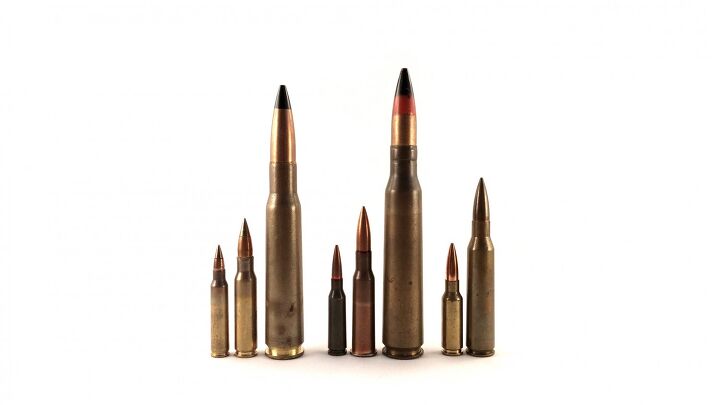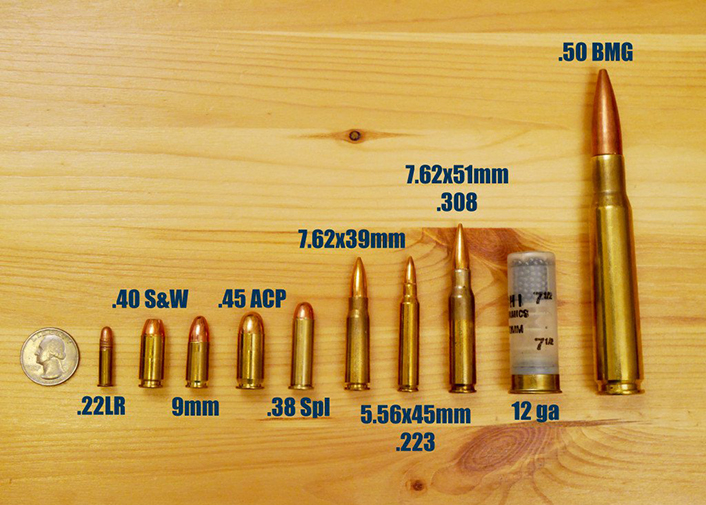Examine This Report on Ammunition Pro Llc
Examine This Report on Ammunition Pro Llc
Blog Article
Ammunition Pro Llc Fundamentals Explained
Table of ContentsSee This Report on Ammunition Pro LlcAmmunition Pro Llc Can Be Fun For EveryoneSome Known Incorrect Statements About Ammunition Pro Llc An Unbiased View of Ammunition Pro LlcLittle Known Questions About Ammunition Pro Llc.Ammunition Pro Llc Fundamentals Explained
To put it simply, it requires to be learned by those desiring to partake in shooting or knowledgeably review with specialists in the field. As shooters, if we desire others to make use of the right terms, we require to do 2 things: first, use it appropriately ourselves, and 2nd, share that understanding with others.
The right term for a firearm's ammo is a cartridge, although appropriate jargon terms include round or loud. This cartridge is a pre-assembled ready-to-use sort of ammo designed for modern weapons. Although the term bullet is commonly made use of to describe a cartridge it is not an exact substitute for the right term as the bullet is but one element of the total cartridge.
(https://www.gaiaonline.com/profiles/ammunitiondde/47127657/)Your rifle requires ammunition to operate appropriately and that ammunition is referred to as a cartridge. That exact same rifle may discharge a bullet, but it is filled with cartridges, rounds or loads of which the bullet is just one component. If you are getting bullets you will only get that single element, the projectile, which is just essential if you are associated with reloading.
The Ammunition Pro Llc Statements
A round is a single cartridge. A covering is a type of ammo discharged by bigger caliber weapons, normally a cannon or weapons piece. These coverings were originally strong pieces, counting on weight and kinetic pressure to cause damage. In the mid-19th century, dynamites were contributed to coverings and the high-explosive projectile was developed.
Most modern-day cartridges consist of 4 major elements the situation, guide, propellant, and projectile. A shotgun cartridge, even more commonly described as a shell, is composed of five parts the case, primer, propellant, projectile(s) and heap. Allow's consider each component of a round, exactly how it works, and alternatives that might be readily available: The casing is the container, or housing, into which all the other components fit.
Technically, the boosted use metals aside from brass have made this vernacular unreliable, nevertheless, it stays a typically utilized and approved term. If you will be refilling you need to stick to brass, brass alloy or layered brass. Pure first run brass is best; however, recycled brass can be made use of.
Various other forms of brass, consisting of alloys or layered variations, can be made use of but will have a much shorter life expectancy. Early weapons counted on gunpowder, which is a details combination of chemicals that burns rapidly and swiftly produces expanding gases as it burns. Developing the capacity to confine and regulate the burning procedure and gas development was the vital to creating trusted, and secure, guns.
The Buzz on Ammunition Pro Llc
Due to its instability gunpowder has been changed by modern-day chemical substances that complete the same result without the risk. The propellant requires a smaller cost to be securely stiring up and this is accomplished by the guide.

the bulletEvery gun needs an item that will be eliminated from the firearm which will, consequently, be made use of to strike the intended target. This object is called the projectile, although the terms bullet, slug or shot are often used in its location. In truth rifles & pistols fire bullets while shotguns fire slugs or shot, the latter being made use of to describe a group of pellets gotten rid of from a single shell or covering.
Bullets, which is an acceptable term for the projectile for most contemporary weapons, come in a range of kinds. Each is developed for a various objective and may or may not cycle effectively in every gun.
Ammunition Pro Llc - The Facts
The function of the heap is to create a much more impermeable area in which the propellant' s gases can develop when melted and to assist in driving the projectiles in a consistent fashion. Unless you refill your own ammo it might show up unneeded to understand exactly how the numerous fundamental components of ammunition parts fit together and operate in consistency.
As discussed earlier, the case is the housing into which the various other components are housed. When it comes to centerfire cartridges (the most common kind of contemporary ammo) the guide is suited a pocket in the base of the instance, the propellant is loaded right into the hollow interior room and a projectile (aka bullet) is secured right into the open end.
The shooting pin, consequently, relocated swiftly onward and strikes the guide. Once struck by the shooting pin the primer stirs up and nearly right away stirs up the propellant by allowing a fire to get in the cartridge using a small hole behind the primer cap. This results in an instant chain reaction that produces increasing gases which, due to the restricted room within the situation, create the projectile to be swiftly removed.
The Definitive Guide to Ammunition Pro Llc
Obviously, every weapon proprietor has a responsibility to check out the owner's manual and practice risk-free capturing. Prior to you know it, you will be the one others come to for information, waiting patiently while you shoot so they can ask "Is it a bullet, ammunition, or cartridge?".
We might make income from the products available on this web page and take part in affiliate programs. Find out more If you're asking yourself, What are the fundamental components of ammunition? You have actually come to the right place. Let us break it down for you. The four fundamental elements of all kinds of ammo are the case, the guide, the powder, and the projectile.

Cartridge cases are typically constructed from brass. They will hold the guide, gunpowder, and projectile. (Photo/Richard Mann)The cartridge situation is what holds all self-supporting ammunition with each other. With rifle and pistol ammo, the instance is occasionally described as "brass." With shotguns, the case is most often called a shell or a hull.
The Only Guide to Ammunition Pro Llc
Brass instances are reloadable, while steel cases are not. With shotgun hulls or coverings, the base is made of brass for toughness, and the remainder of the instance is made of plastic for economy.
With a lot of shotgun coverings, additional info concerning the lots is printed on the plastic part of the hull. Centerfire guides fit into the cartridge or covering head, and when impacted by the firing pin they produce a trigger to begin the gunpowder burn. (Photo/Richard Mann)There are two types of priming techniques made use of in modern, self-contained ammunition.
Report this page